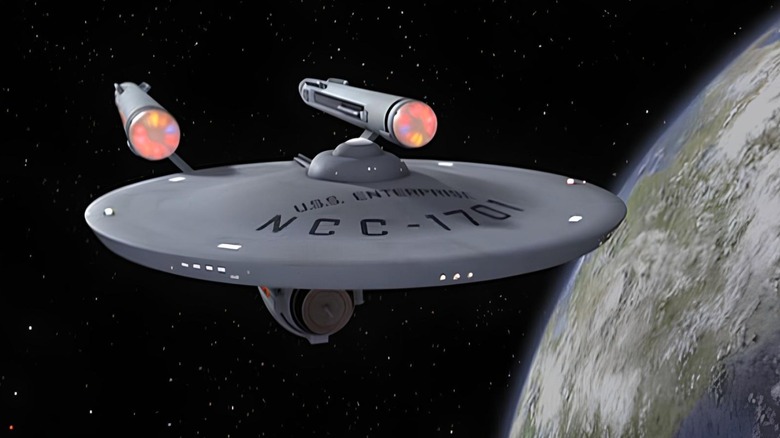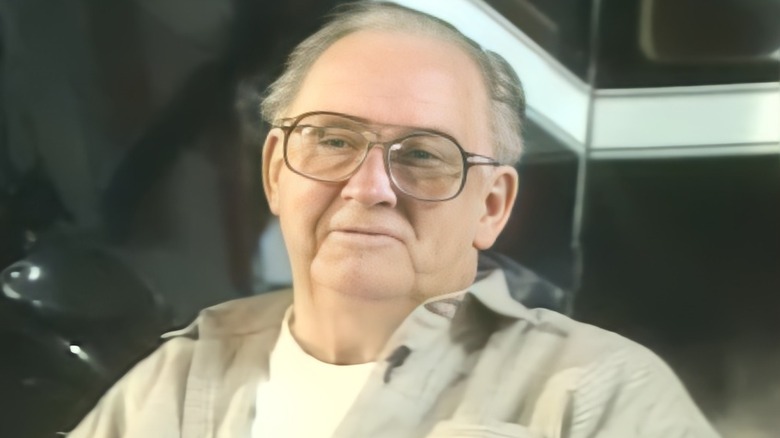Star Trek: What Does NCC Stand For?
On "Star Trek," every Federation starship receives a name and a registry number, made up of a prefix and a numeral. The starship Enterprise, the show's most famous Constitution-class heavy cruiser, boldly goes where no man has gone before bearing the registry number NCC-1701. Although "NCC" is by far the most common Federation prefix, there's unfortunately no in-canon explanation for what it signifies.
Production designer Walter M. "Matt" Jefferies has said both that he came up with the prefix by combining the American civil aircraft prefix "NC" with the Soviet aircraft prefix "CCC" and that the second "C" was added for artistic flair. "Since the 1920's [sic], [']N['] has indicated the United States in Navy terms, and [']C['] means 'commercial' vessel. I added an extra [']C['] just for fun," Jefferies is quoted as saying in "Star Trek: The Original Series Sketchbook."
Meanwhile, "Star Trek" author and illustrator Franz Joseph claims in his 1975 reference book "Star Trek Blueprints" that "NCC" stands for "Naval Construction Contract." Now, Joseph's work isn't considered canonical, but since no creator officially attached to "Star Trek" has ever offered anything better, many Trekkies — and even some associated novelists — tend to accept this explanation.
Jefferies wasn't too bothered by its origin
In 2000, almost 40 years after he slapped those three befuddling letters on the hull of the USS Enterprise, Matt Jefferies spoke with "Star Trek: The Magazine" to clear up a rumor propagated by the Experimental Aircraft Association that the registry number NCC-1701 was inspired by his 1935 WACO Model YOC aircraft, which bears the registry NC-17740. In truth, he didn't buy the plane until 1968, so it couldn't have inspired the Enterprise, although he admitted that he never tried too hard to dispel the myth.
These are not the words, nor the timeliness, of a man who genuinely cared what Trekkies think. If Jefferies wanted to demystify "NCC," then he would have done so. By his own account, at least one of the three letters is present because he thought it was "fun," so it's possible that he never even applied words to them. There are a lot of questionable things we ignore in the "Star Trek" franchise, and maybe this too is okay to let pass by without further thought. Jefferies certainly did.

